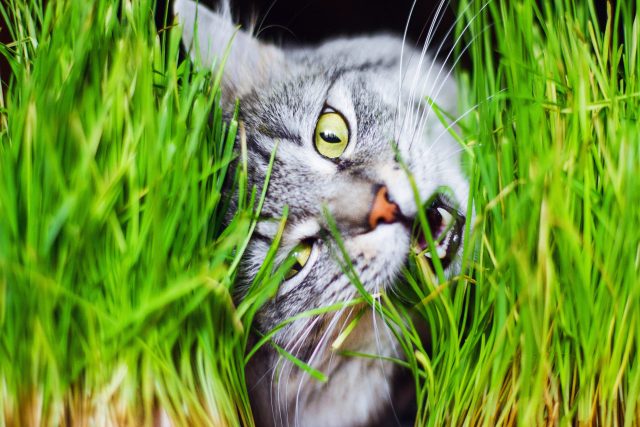Felines are natural explorers, and providing them with an enriching environment is essential for their overall well-being. Building your cat their very own planter stuffed with homegrown greens is a great way to give your kitty a chance to play jungle cat in the safety of their home while offering the digestive benefits of cat grass too.
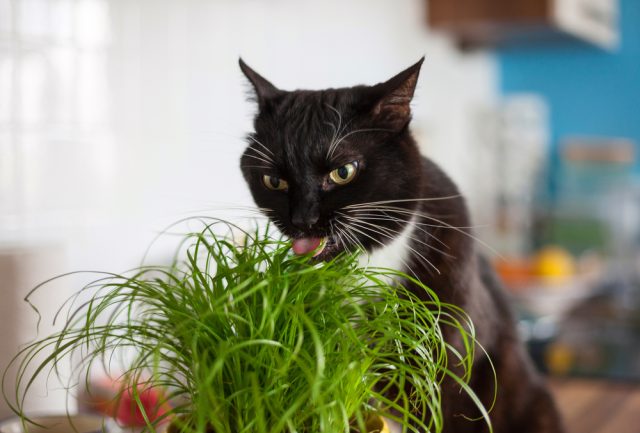
Getting your cat to play with their garden should be no problem as cats are instinctively attracted to grass for several reasons:
- Grass provides cats with essential dietary fiber, aiding digestion and preventing hairballs.
- Chewing on grass can help cats expel any indigestible material from their stomach, acting as a natural purging mechanism.
- The texture and taste of grass can be stimulating and satisfying for cats, offering a sensory experience that they find enjoyable.
- Grass contains nutrients that cats may instinctively seek out to supplement their diet.
Overall, nibbling on grass taps into a cat’s innate behaviors and instincts, making it a pleasurable and beneficial activity for them. So, give your cat the gift of green! Follow these simple steps to create a DIY cat garden your kitty will love.
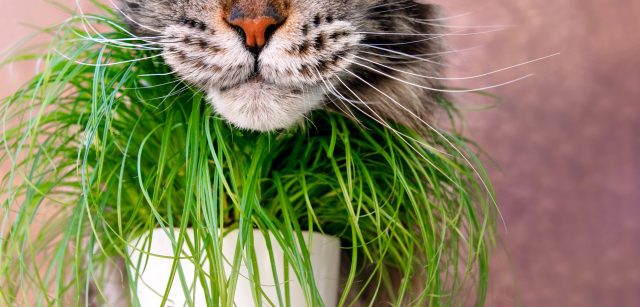
How To Build A Cat Garden Planter
Materials Needed:
- Planter box or container: Choose a suitable size and material for your planter box.
- Potting soil: Ensure it’s lightweight and well-draining. Choose organic options or coco coir substrates when possible.
- Cat grass seeds: Wheatgrass, oat grass, or barley seeds are ideal options. Choose non-GMO, heirloom seeds if you can.
- Catnip seeds: Purchase high-quality catnip seeds.
- Pebbles or gravel: These will facilitate drainage and prevent waterlogging.
- Water spray bottle: To keep the soil moist during germination.
Step-by-Step Instructions for DIY Cat Grass Planter:
#1 – Select the planter box:
Choose a box or container that is wide and shallow, allowing sufficient space for the grass and catnip to grow. Pick a stable planter that won’t topple over when your kitty starts tugging on their grass and nip. Also, ensure the container has drainage holes or create them if needed.
#2 – Place pebbles or gravel:
To aid drainage and prevent waterlogging, spread a layer of pebbles or gravel at the bottom of the planter box. This will ensure excess water can freely drain away from the roots.
#3 – Prepare the soil:
Fill the planter box with potting soil, leaving about an inch of space below the rim. The soil should be light, well-draining, and rich in nutrients. Avoid using cheap garden soils, as they may contain pests or diseases.
#4 – Sow the cat grass seeds:
Scatter a generous amount of cat grass seeds evenly across the soil surface. Gently press them into the soil, ensuring good seed-to-soil contact. Lightly mist the soil with water using a spray bottle.
RELATED: 10 Cat Grass Kits & Products To Grow A Lush Crop Of Fun For Your Kitty
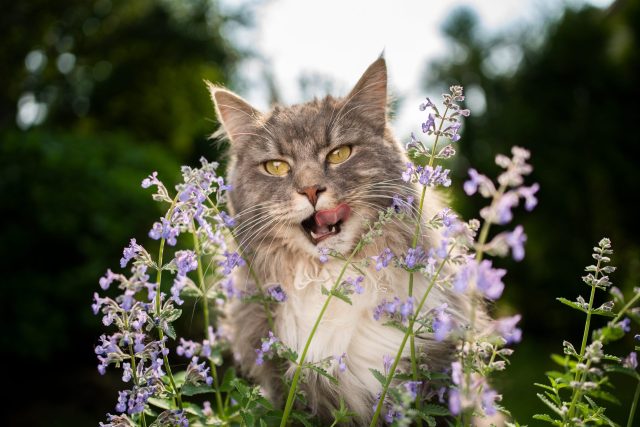
#5 – Sow the catnip seeds:
Choose a separate section of the planter box or pot and repeat the process with the catnip seeds. Your cat will be so excited to have their own fresh stash in no time at all.
#6 – Provide adequate sunlight:
Place the planter box in a location that receives ample sunlight, preferably near a window. Your cat will enjoy basking in the sun beside their healthy, vibrant plants.
#7 – Water and care:
Keep the soil consistently moist by lightly misting it with water. Avoid overwatering, as it can lead to mold or fungal growth. Monitor the growth of the grass and catnip, and trim them occasionally to maintain a fresh supply for your cat.
RELATED: 11 Fun Ways To Keep Your Cat Entertained
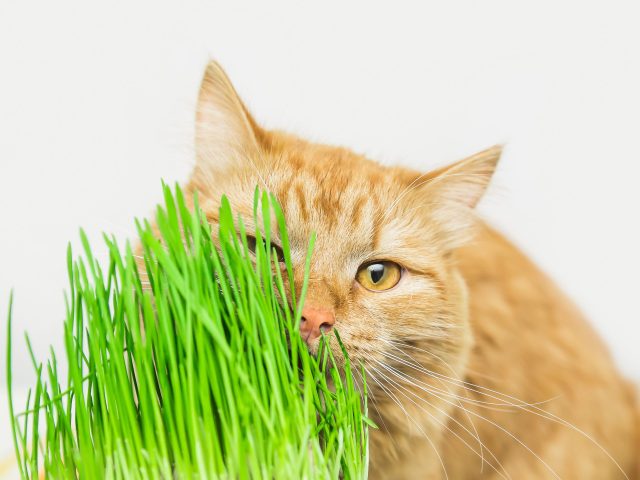
By building a cat grass and catnip planter, you can offer your feline friend a safe and enjoyable natural treat. Watching your cat indulge in the fresh greens and aromatic catnip will bring joy to both of you. So, roll up your sleeves, gather the materials, and create a purrsonalized planter that will keep your cat purring with delight!

